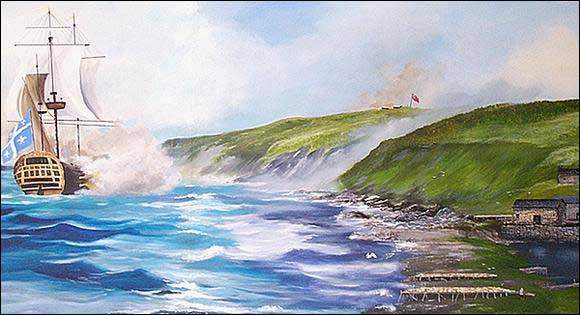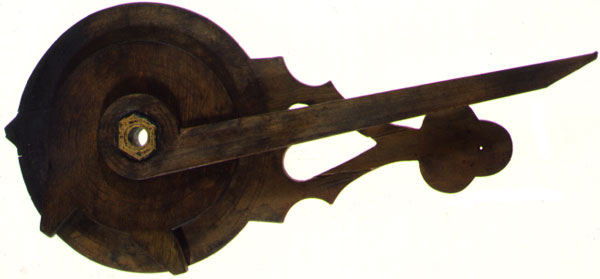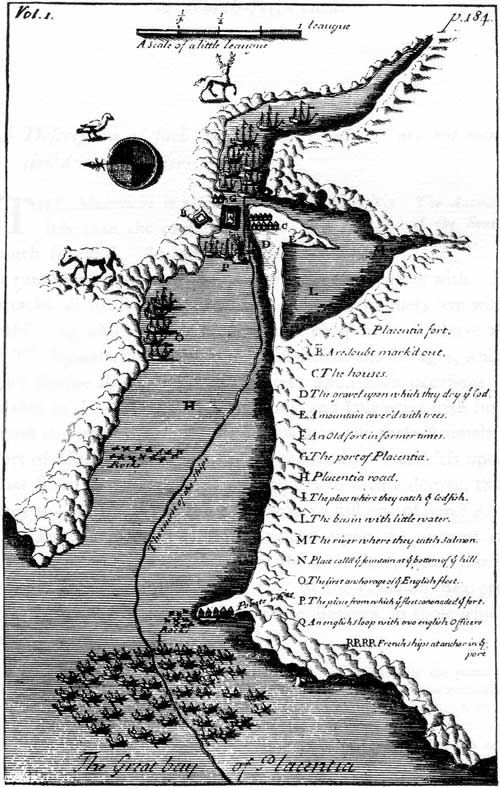Winter of 1696
Hostilities between England and France had been intermittent throughout the 17th century, but war between the two nations was declared formally in May, 1689. Settlements in the New World were soon caught up in the conflict, and Ferryland was no exception. An attack on English settlements on the Avalon Peninsula was planned for the winter of 1696.1

Attack on the Avalon
French forces were to depart from Placentia for the eastern Avalon, one under Pierre Le Moyne d'Iberville by land, and a second force, by sea, under the Governor of Terre-Neuve, Jacques-François de Brouillan.

De Brouillan's force of seven ships, a number of smaller vessels and some 700 men were assembled at Placentia before d'Iberville's march was ready to commence. De Brouillan, perhaps tired of the delay and with an eye to the booty to be taken from the English settlers, set out in September for the English Shore. De Brouillan attacked Bay Bulls, burned five small forts and caused the English there to burn a frigate, the Sapphire, and retreat to Ferryland.

On Monday, September 21, 1696, French troops landed at Ferryland and quickly overwhelmed the settlement. At the time of the attack, d'Iberville was exploring the upper reaches of Placentia Bay, looking for the best overland route to the English shore.
The French looted and burned the entire settlement and sent most of the inhabitants to spend a destitute winter in Barnstaple and, later, in Appledore in the English West Country. Despite their situation, the settlers returned to the West Country may have been the lucky ones. Captives that the French hoped to ransom were imprisoned at Placentia.

A. Placentia fort.
B. A redoubt mark'd out.
C. The houses.
D. The gravel upon which they dry ye Cod.
E. A mountain cover'd with trees.
F. An old fort in former times.
G. The port of Placentia.
H. Placentia road.
I. The place where they catch ye Codfish.
L. The basin with little water.
M. The river where they catch Salmon.
N. The place calld ye fountain at ye bottom of ye hill.
O. The first anchorage of ye English fleet.
P. The place from ye fleet carronade ye fort.
Q. An English sloop with two English officers.
RRRR. French ships at anchor in ye port.
Kirke Deaths
David Kirke, Jr., and one of his brothers died at Placentia; the third surviving son of Sir David and Lady Sara Kirke died at St. John's a short time later, clearly a result of his imprisonment.
The settlers deported to Barnstaple and Appledore returned to Ferryland and reestablished the settlement the following spring. The winter of 1696-97 is the only period since August 1621 when Ferryland was not occupied by Europeans.
1. Baudoin, Jean. '[Abbi] Jean Baudoin; 10 November, 1696 to 19 November, 1696: Extracts from 'Journal du voyage que j'ay fait avec M. d'Iberville, Capitaine de Frigate de France en l'acadie en l'isle de terre-neuve' [Journal of the Voyage that I made with M. d'Iberville, Captain of a French Frigate, to Acadia to the Island of Newfoundland]'. Original is an unidentified alternate version of France, Archives des Colonies, AC Clld, vol. 3, f. 170. The latter is on microfilm at National Archives of Canada. Published in Alan F. Williams, Father Baudoin's War: D'Iberville's Campaigns in Acadia and Newfoundland 1696, 1697, edited by Alan G. Macpherson (St. John's: Memorial University of Newfoundland, ©1987) 50, 173-191. Translated by P.E. Pope.




